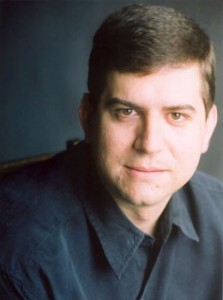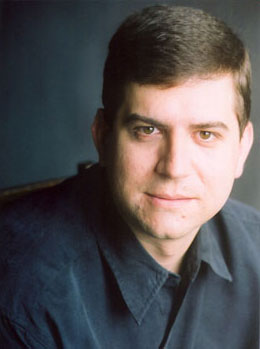The 2011 National Conference on Keyboard Pedagogy opened with a keynote speech during the Pre-Conference Seminar. It was such an inspiring speech!
 The Future of Pedagogy: Training the Teachers of Tomorrow, by Pete Jutras (W @ 2:30pm)
The Future of Pedagogy: Training the Teachers of Tomorrow, by Pete Jutras (W @ 2:30pm)
Pete Jutras began his speech with an diagram showing a pyramid that represented music makers. The most educated and successful teachers/musicians are those at the top of the pyramid. The amateur music makings are all those that create the wide base of the pyramid.
Problems:
- Concert attendance is down.
- Recording sales are down.
- Acoustic piano sales are down.
We need to worry about these issues, because even those of us at the top of the pyramid will be affected. The very value of music is at stake here. And so, Dr. Jutras gave us a call to action: we need to think about how we can increase the value of music!
Dr. Jutras referenced an article called “Cultivating Demand for the Arts” by the RAND corporation (I found it online here). This article states that we are encouraging supply but not demand…which means value for the arts is decreasing.
What is demand, and how can we increase it? Demand are individuals who seek an aesthetic experience through the arts. We can increase demand in a number of ways:
- Increasing aesthetic perception.
- Teach to create and play artistically.
- Impart historical & cultural knowledge.
- Increase individuals’ abilities to interpret art.
In summary: we need to encourage UNDERSTANDING of music!
Humans naturally desire to make music. All the cultures of the world show evidence of music making. Some cultures don’t even have a word for “music making” because everybody is a music maker. For them, it would be like having a word for “breathing.” Everybody does it! Our Western culture seems to have some kind of barrier. Our society thinks music requires genius and hours of practice, rather than that music is an art that we all can master!
This leads to the question: Does music mean something different to those who are at the top of the pyramid than to those at the bottom?
Consider the “Happy Birthday test.” To many people, music making means being able to play familiar tunes in a variety of keys, with different harmonies and variations and embellishments. How many of us can do this? How many of us teach this skill to our students? We argue that we want to focus on classical standards, but Bach, Mozart, and Beethoven would have known how to totally kill Happy Birthday! 🙂
We often hear, “I used to play piano.” It seems that at some point they stopped being a music maker?! Dr. Jutras compared this statement to saying, “I was a renter,” as if you can only play piano with a teacher. Why do we teach piano this way? We need to stop this and start teaching towards OWNERSHIP.
How do we teach towards ownership? We need to teach skills such as composition, improvisation, variation, harmonization, and literacy (learning to read and write with understanding). And encourage students to take ownership of the process by involving them in the process of interpretation and making other musical decisions.
While the sales of acoustic pianos are sagging, the sales of cheap portable keyboards are in the millions! Why are people buying them? Yes, because they are cheap, but mainly because they are portable creation stations! You can just hit buttons and mark music with the keyboard.
Dr. Jutras argued that the teachers of tomorrow need to consider the big picture, all parts of the pyramid. We need to teach ownership and understanding. We all need to take part in advocating music and the arts. This is how we will successfully teach VALUE.



Very good- some great thoughts there!!
Hi Joy.
I love love love your posts! Thank you for sharing the highlights of the conference.
I couldn’t make it but would love to hear more.
Along the lines of “ownership”. Here is what I say to my students when they ask me to play a song first (so they can play it by ear). “So what college have you picked out for us to go to?” and when they ask what I mean I say, “well, if you can’t play music without (me) first showing you how it goes, then I guess I’ll have to go along with you when you move on to college, otherwise you won’t know how to play anything when you get there. ” They get a good laugh out of it and then I go on to say how I’d better start preparing my family by telling them that I’ll be moving out and going to college with my student so they (family) will need to be on there own. We always laugh at the thought of this. Of course my students don’t want me to have to follow them around in life, so they always agree that they should learn to do it by themselves, it’s then, that they really listen and apply all the right tools to sight read better. LOL!
lol, very nice Suzi! Thanks for your comment!
Thanks for sharing your notes on this talk, Joy, it sounds fascinating! I think the suggestion that what’s needed for the future of music education is increasing understanding of music is a particularly insightful one.